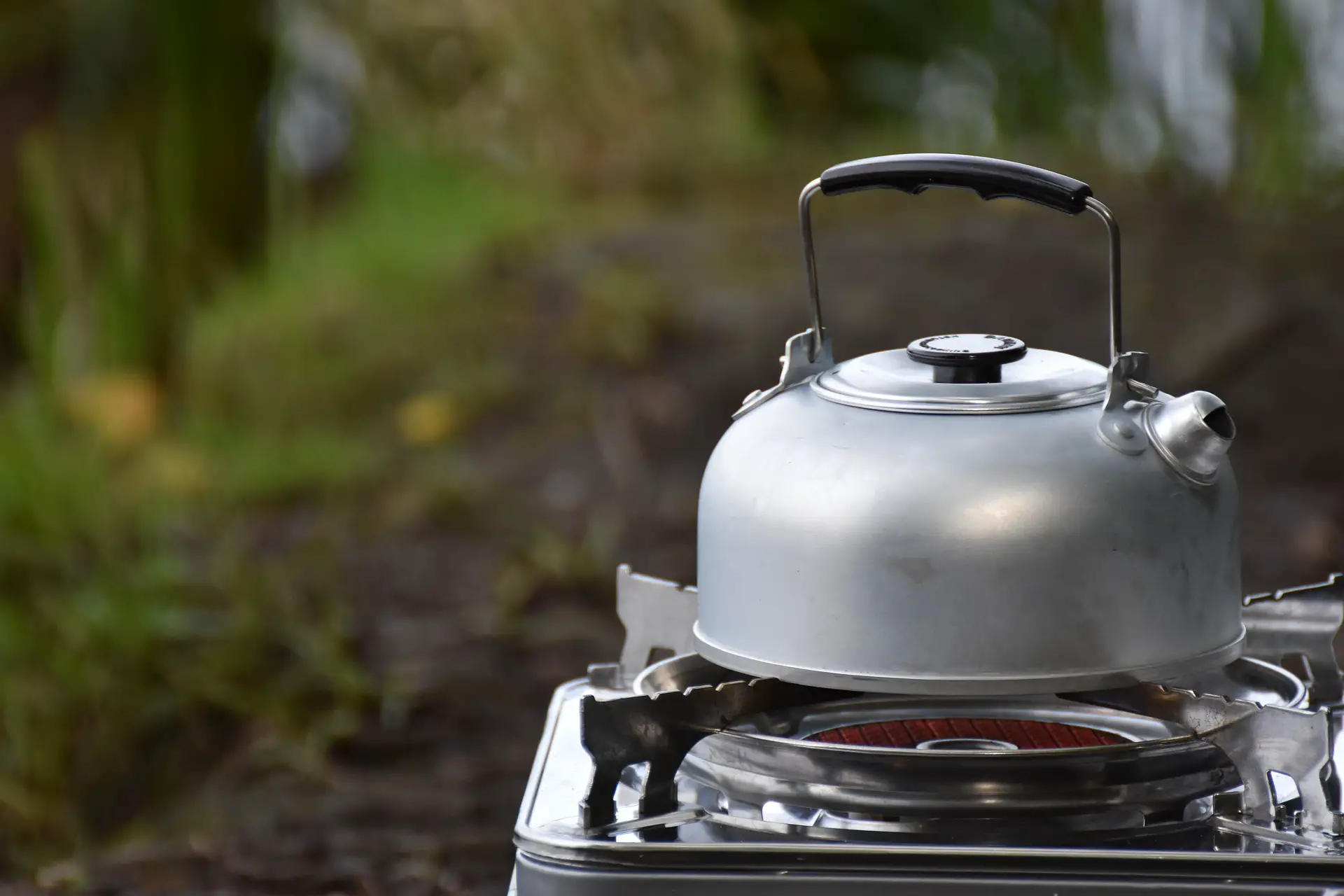Camping stoves are essential pieces of kit. Being able to cook your food while outdoors can raise your spirits, provide comfort, and even keep you alive. But are camping stoves safe?
The short answer is yes, if used correctly.
The ability to cook your food outdoors is an awesome obstacle humans have overcome. We evolved from open fires to stoves to pressurized gas canisters and screw-on stoves that deliver a constant, controllable flame.
Grabbing a stove and a bottle of gas on your way out of the door is a perfect way to ensure you have a good camping trip.
But, like any piece of equipment, there are some tricks, tips, best practices, and dos and dont’s when it comes to camping stoves.
We’re dealing with highly flammable, pressurized gases, so it’s always best to be on the safe side.
Table of Contents
Are portable gas stoves safe?
Portable gas stoves are awesome. They’re cheap, light, compact, and easy to use. Even the most basic gas stoves are simple to use and make cooking outdoors easy and efficient.
With any cooking operation, be it on an open fire or using a huge four-burner gas BBQ, toxic fumes and poisonous gases are released.
When it comes to propane and butane gas stoves, the vapour isn’t toxic, but it is an asphyxiating gas. So, when you inhale propane or butane vapour, it displaces the oxygen in your lungs and makes it hard for your body to absorb the essential gas.
Symptoms of inhaling propane or butane vapours can include coughing, nausea, dizziness, vomiting, and light-headedness. Higher levels of exposure to propane and butane can lead to loss of consciousness, convulsions, and death.
While this all sounds pretty scary, none of it means that camping stoves aren’t safe. The stoves themselves and their corresponding gas canisters and bottles are designed so well that you can pretty much guarantee they won’t fail.
But, because we’re dealing with potentially deadly gases, it’s super important to always be careful and follow a few basic rules when it comes to using portable gas stoves while camping:
- Buy the best you can afford: skimping on essential gear is a good way to ruin your camping trip.
- Never cook inside your tent: carbon monoxide builds up in small, unventilated spaces like tents.
- Keep gas bottles out of direct sunlight: propane is especially volatile and can become dangerous to use if overheated.
- Always make sure your stove is turned off: a good way to ensure no leaks is to unscrew your gas bottles completely when you’re not using them.
Which is better – butane or propane stove?
Butane and propane are both liquified petroleum gases (LPGs) and by-products of the oil and gas industry. Butane tends to come in small disposable aluminium bottles while propane normally comes in medium and large refillable steel bottles.
Another important difference between butane and propane when it comes to camping is their boiling points.
Butane has a higher boiling point compared to propane. That means propane performs better at colder temperatures. It’s also more efficient.
On the other hand, butane tends to be cheaper and comes in handy little bottles perfectly designed to fit into a backpack.
If you’re going on a weekend camping trip, I’d recommend you get a small bottle of butane for a collapsible, portable camping stove.
If you know you’ll be camping in cold temperatures, get a bottle of propane. Propane’s freezing point is -41 degrees Fahrenheit, while butane’s is only 32 degrees Fahrenheit.
If you’re setting up a 3-month base camp somewhere or cooking full-time on a gas stove, I’d say get a big 5kg bottle of propane. It will be way more cost-effective in the long run.
Can you burn propane in a butane stove?
Yes, but you need an adapter. Propane is kept under higher pressure than butane, so you can’t just screw a propane bottle into a butane stove.
As you need to control the flame more with propane than butane, you’ll need to get a specific piece of kit, usually called a Lindal valve converter or propane converter connector.
You can get them online and in most camping stores. It’s worth getting one before you really need one; jerry-rigging a gas stove is a good way to make a bad situation worse.
Is it safe to use a butane stove indoors?
Butane is one of the alkanes, a group of fuels that burn relatively cleanly. This is why it’s so popular when it comes to camping. You’ll find plenty of butane stove setups designed for indoor cooking.
While butane is a pretty safe fuel type, you need to take steps to avoid carbon monoxide from building up wherever you cook. To ensure airflow, make sure there’s good ventilation. You might also want to get a portable carbon monoxide detector.
It’s imperative you don’t use your butane stove inside a tent. People die every year because they cooked inside or used their stoves to keep them warm. When you use a propane stove, make sure you use it outside, even if it’s raining.
Can I convert a butane stove to propane?
Yes, it’s the same as using propane on a butane stove. You’ll need to get an adapter and potentially need to change the rubber pipe. It won’t be as efficient, but it will work.
It’s always best to run the gas the stove was designed for. But, it’s also a good idea to get the adapters. Then, if either gas is unavailable, you can just switch out the gas and keep on cooking.
